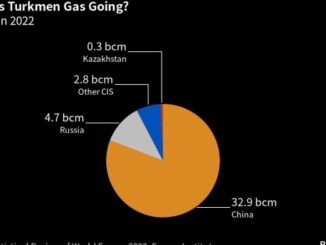
Vienna, 5 July (Argus) — Representatives of the oil and gas sector today noted the influence of the energy transition on their industry and changes they commit to make, delegates heard at the Opec seminar in Vienna.
Renewable energy is “helping to manage” oil demand growth, president and chief executive of Saudi Arabian state oil company Aramco Amin Nasser said today. “The growth is still there”, but it is “not at the same pace that it used to be”, he added.
On the energy transition, “the direction of travel is there and no-one can change it”, director general of renewable energy agency Irena Francesco La Camera said.
But Nasser, and secretary general of the Gas Exporting Countries Forum Mohamed Hamel, remained confident of the role fossil fuels will play in the global energy transition. “You need all energy sources, you need gas for sure”, Nasser said, adding that “we need to be cautious about affordability”.
Gas is not a bridging fuel as part of the energy transition, Hamel said, adding that “we see it more as a destination fuel”. But Hamel’s argument for gas was made almost exclusively as a comparison with coal — the most heavily polluting of fossil fuels.
The “flexibility” that gas offers is key in a reliable energy system, TotalEnergies chief executive Patrick Pouyanne said. But he said that the oil and gas industry “must lower the emissions of what we produce” and “must invest in low-carbon energies”. A so-called “win” for the oil and gas industry at the UN Cop 28 climate summit, set for later this year in the UAE in Dubai, would be “a demonstration to the world that we are very committed and serious” on cutting emissions from fossil fuel production, he added.
Hamel also brought up the need to tackle “many challenges associated with the use of natural gas”, such as flaring.
Although EU energy commissioner Kadri Simson noted that the methane pledge was key for the oil and gas industry, it was not discussed in detail by other panellists, despite being a concrete target with a range of signatories. She was referring to the global methane pledge, launched at the UN Cop 26 climate summit in 2021 and signed by 150 countries. It aims to cut global methane emissions by 30pc by 2030, from 2020 levels.
Nasser repeatedly emphasised the need for a just and “multi-speed transition”, taking into account different countries’ economies. In response to a question about whether government incentives such as the US’ Inflation Reduction Act are having an effect, he said that “it’s working… but this is not sustainable… incentives [are] not available for developing countries”.



